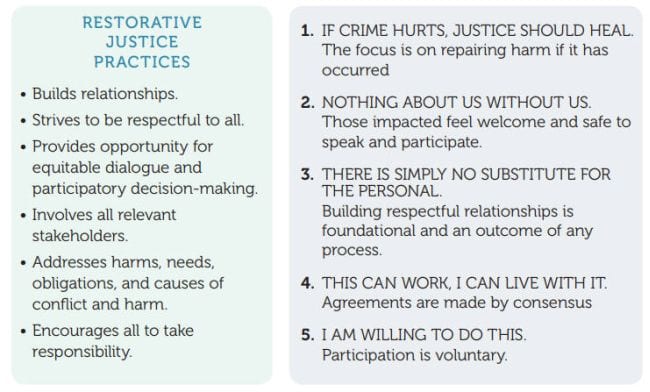
Taking time to settle yourself, and the class, will be well worth the small amount of time it takes.
A few ways to offer moments of grounding are:
Breathing
Humming, or making a “vooooooo” or “om” sound stimulates the vocal cords and facilitates long, slow, exhalation
Valsalva Maneuver: Exhale against a closed airway by keeping your mouth closed and pinching your nose while trying to breathe out. It increases the pressure inside of your chest cavity thereby stimulating your vagus nerve
Sensing
Sensing refers to the idea of taking a moment to sense you. What is your physical state? What is your emotional state? What are you experiencing? Can you sense your breath? Can you sense the ground? Taking 2-3 minutes to ask yourself these questions makes you present. It sets you up to be mentally engaged in the task at hand.
University of Michigan: Keep Teaching Online Teaching
Language is a powerful way to create safety in a classroom. the languaging we chose and the metaphors we use can bring calm to the collective.
~J. Stewart Ablon, PhD
What Teachers Need To Know About Restorative Justice.
How One University Went All-In On Restorative Justice Chronicle of Higher Ed

Each of these guides are free to access and download — simply click each title to view them.
Chicago Public Schools Restorative Practices Guide and Toolkit
A collection of tools and resources for school staff, administrators, and community partners looking to develop restorative school communities.
Office of Social and Emotional Learning, Chicago Public Schools. (2017 August 1). Restorative Practices Guide and Toolkit [Web blog post]. Retrieved from https://blog.cps.edu/wp-content/uploads/2017/08/CPS_RP_Booklet.pdf.
Fix School Discipline Toolkit For Educators
A resource intended to help schoolteachers and administrators identify alternative disciplinary measures encouraging accountability and school safety.
Fix School Discipline (2017, December 1). Toolkit For Educators. Retrieved from http://www.fixschooldiscipline.org/wp-content/uploads/2017/02/FSD_EducatorToolkit_small.pdf
Implementation Guides for Restorative Practices by Restorative Solutions, Inc.
A directory of restorative practice implementation guides published by various school systems, education agencies, educators, and non-profit organizations. This directory contains most of the guides included on this page, in addition to many others.
Restorative Solutions, Inc. (n.d.). Implementation Guides for Restorative Practices in Schools. Retrieved from http://restorativesolutions.us/implementation-guides-for-restorative-practices-in-schools
Oakland Unified School District Restorative Justice Implement Guide
A digital guide providing "stepping stones" containing restorative justice principles, implementation tips, reflections, and hands-on activities.
Oakland Unified School District. (2019 March). Restorative Justice Implementation Guide: A Whole School Approach. Retrieved from https://www.ousd.org/cms/lib/CA01001176/Centricity/Domain/134/BTC-OUSD1-IG-08b-web.pdf
San Francisco Unified School District Restorative Practices Whole-School Implementation Guide
A guide produced by San Francisco Unified School District offering step-by-step approaches for the successful and sustainable implementation of restorative practices in schools.
San Francisco Unified School District. (2012). Restorative Practices Whole-School Implementation Guide. Retrieved from https://www.healthiersf.org/RestorativePractices/Resources/documents/SFUSD%20Whole%20School%20Implementation%20Guide%2final.pdf
Center for Restorative Justice at Suffolk University (MA)
An educational center established in 1997 to promote restorative justice policies and practices, the Center for Restorative Justice at Suffolk University provides trainings and professional development opportunities to school systems and communities looking to adopt restorative practices. Their Restorative Justice for Schools page offers restorative justice-informed curricula and disciplinary measures, as well as resources on relationship building and fostering productive dialogue in classrooms.
National Association of Community and Restorative Justice
A membership-based organization which hosts a biennial rotating national conference, NACRJ provides members and practitioners with a wide variety of resources, trainings, and policies related to restorative justice implementation. NACRJ also provides national directories of schools, coalitions, programs, and resource centers involved in restorative justice.
Pathways to Restorative Communities (MA)
A non-profit offering workshops, school system trainings, coaching, and circle facilitation to teachers and administrators looking to adopt restorative practices. Pathways to Restorative Communities also offers a robust resources page containing videos, articles, websites, and books, and has published a free, downloadable guide to implementing restorative practices in school environments.
The Zehr Institute for Restorative Justice at Eastern Mennonite University (VA)
A non-profit organization offering restorative justice-related web resources, publications, trainings, events, webinars, and networking opportunities. The Zehr Institute is part of Eastern Mennonite University's Center for Justice and Peacebuilding, which offers professional and educational workshops and trainings on trauma-informed leadership and classroom circle processes.
International Institute for Restorative Practices (PA)
An international graduate school offering graduate certificates, master's degrees, and continuing education opportunities in restorative practices. IIRP also offers a number of free webinars on promoting restorative practices among youth and in school settings.